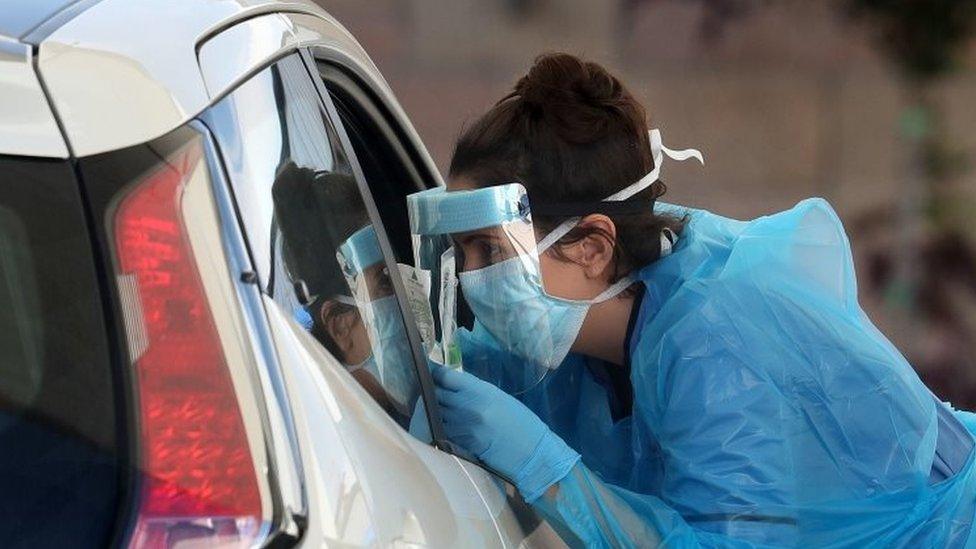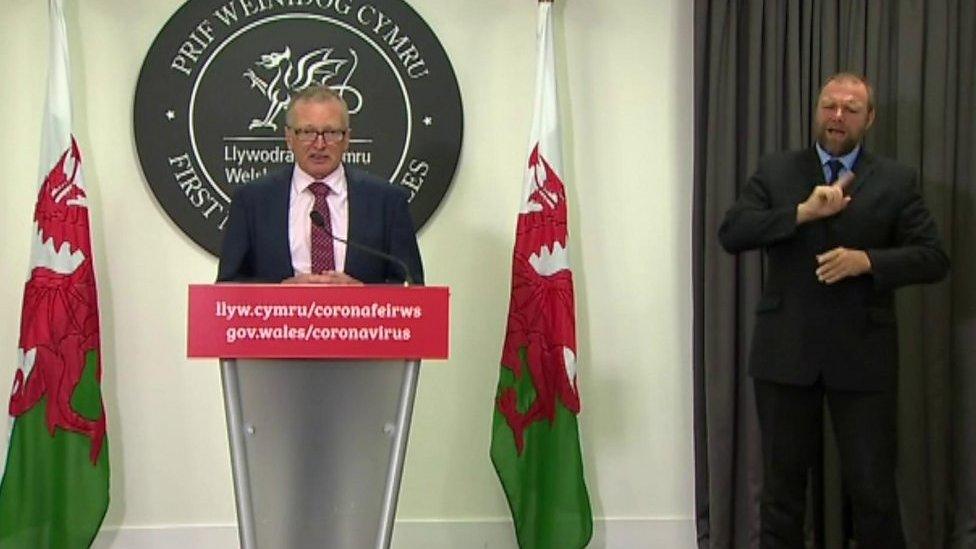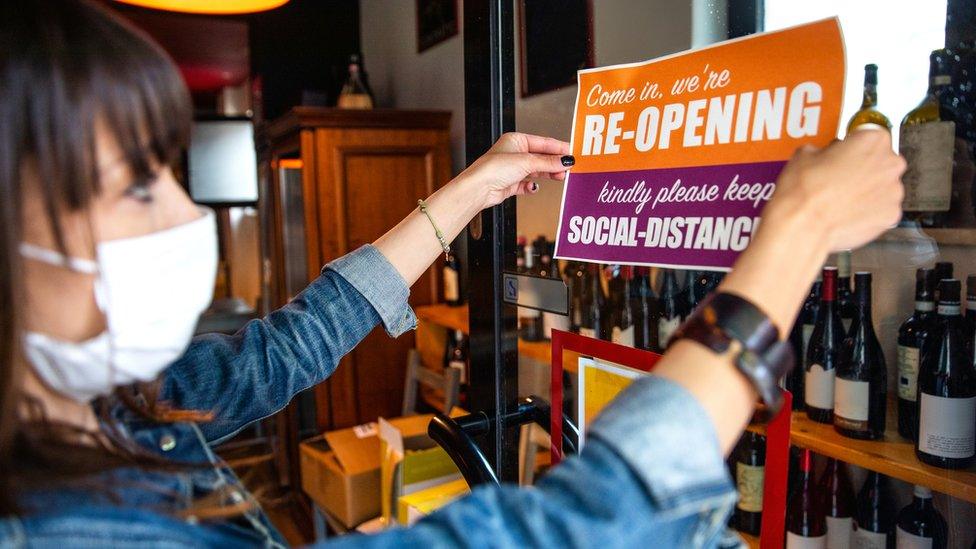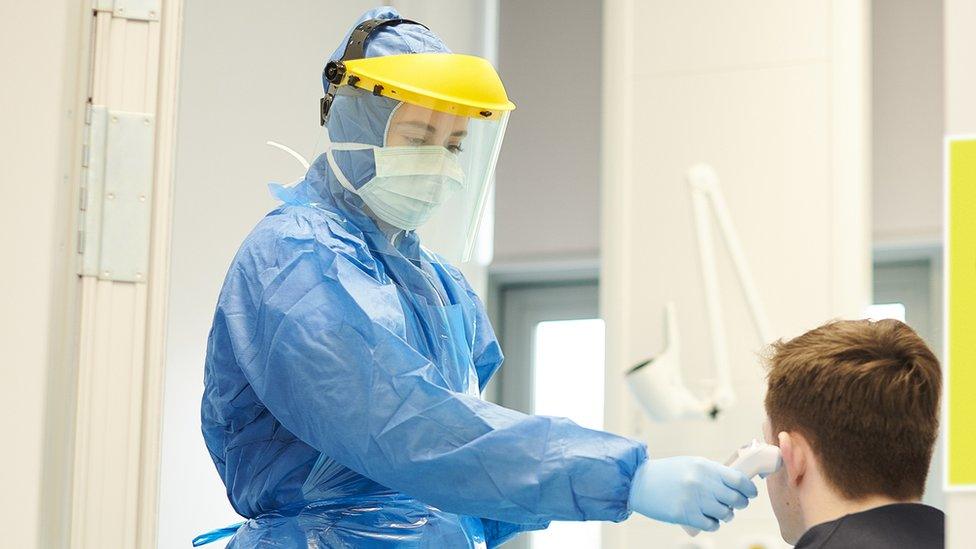Coronavirus second wave: Wales' chief medical officer worried winter spike 'likely'
- Published

Coronavirus could return if clusters are not "stamped on", Frank Atherton said
Wales' chief medical officer says he is worried coronavirus could return in autumn before spiking in winter.
Frank Atherton said it was important clusters like that in Wrexham were identified and measures taken to "stamp them down".
The NHS was facing a "difficult challenge" negotiating one of the "most complex environments" he had seen.
While surveillance had improved, he admitted it was still hard to predict what would happen.
"We could see a surge in the autumn and then a bigger peak in the winter and that's the most likely scenario that we're planning for," he said.
"But really we just have to wait and see, and watch very carefully.
"The really important thing here is to identify cases that are coming up, to make sure that clusters that are happening in parts of Wales, as we've seen recently up in Wrexham for example, are identified through our track, trace and protect programme, and we're able to put in place the measures to really stamp on those, to stamp them down, so they don't become widespread community transmission.
"That's really what we're trying to avoid."

There has been concern about mass gatherings, including in Cardiff Bay
Dr Atherton also said there was "cause for concern" about the challenges mass gatherings could present.
There have been several such meetings in Wales and the UK recently, including at Cardiff Bay.
"My anxiety is about the risk of return, and we are seeing across Wales a number of outbreaks that we've had, and those are all being managed.
"But there is a real risk that if the virus takes off again in the autumn we could see wider transmission," he told BBC Radio Wales.

The chief medical officer emphasised the important of social distancing and hygiene
Nothing could be "taken for granted" he said.
"We have to continue to rely on social distancing and those hygiene measures we talked about so much to keep us all safe," he said.
- Published4 August 2020

- Published5 August 2020

- Published3 August 2020
